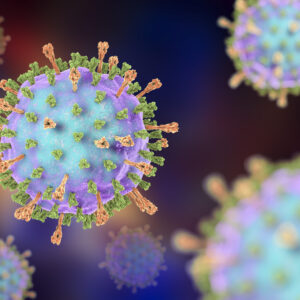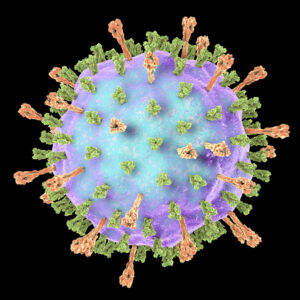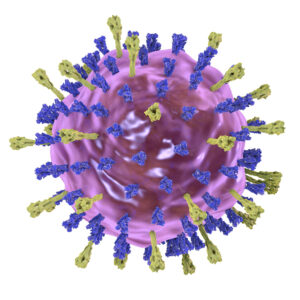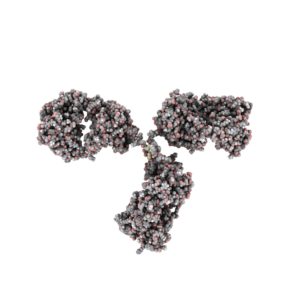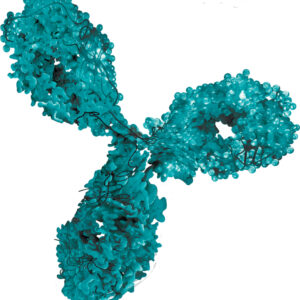Mumps Virus
Mumps is a highly contagious disease caused by the mumps virus (MuV). The virus primarily affects children causing a self-limiting febrile illness with inflammation of the salivary glands. Infection in adults can lead to clinical complications including orchitis in men. Since the 1960’s, the introduction of an effective vaccine and a widespread vaccination program has significantly reduced cases of mumps. However, recent outbreaks of mumps in vaccinated individuals have been reported causing concern in the global health community.
Mumps Virus Background
Mumps virus (MuV) is a single stranded negative-sense RNA virus, which belongs to the Rubulavirus genus of the family Paramyxoviridae. The viral genome is contained within a nucleocapsid enclosed by a lipid envelope that consists of three layers. The outer layer contains glycoproteins which have neuraminidase, hemagglutinin and cell-fusion (F-protein) activities. One serotype and 13 genotypes of MuV have been identified to date.
Mumps, also known as infectious parotitis, is a highly contagious disease caused by the mumps virus. MuV is globally widespread and predominantly affects children but can also cause disease in adults. Humans are the only known host of mumps virus and infection is spread from person-to-person via respiratory aerosol droplets, saliva and direct contact with infected individuals (WHO).
Mumps infection is typically a mild self-limiting disease, which resolves within 2-3 weeks of symptom onset. The disease is asymptomatic in a third of cases, but individuals can still be contagious. When symptoms of MuV infection occur they include headache, fever and general malaise followed by inflammation and swelling of the parotid glands. The MuV can also cause inflammation in other organs including the testes causing orchitis, which may lead to testicular atrophy in males post puberty. The virus is also highly neutrophic and may cause complications in some cases of MuV infection, such as aseptic meningitis, viral encephalitis and transient deafness (Rubin, S).
Since the introduction of an effective vaccine in the 1960’s, global cases of Mumps have been in decline. However, outbreaks of MuV in vaccinated individuals and complications associated with some vaccine strains have been reported in recent years. These cases have been a cause for concern and have renewed interest in the mumps virus.
References
- World Health Organization; Immunization; Mumps
- Rubin S, Eckhaus M, Rennick LJ, Bamford CG, Duprex WP. 2015. Molecular biology, pathogenesis and pathology of mumps virus. J Pathol. Jan;235(2):242-52.
Mumps Virus Antigens
We are pleased to offer a recombinant Mumps virus lysate and a pair of nucleoproteins for research use. The lysate can be used as an antigen, for the purification of viral proteins, or in assays for the detection of viral antibodies. The nucleoproteins represent two strains of MuV and are suitable for use in immunoassay development and vaccine R&D.
Mumps Virus Antibodies
We are pleased to offer a selection of Mumps virus antibodies, suitable for the development of ELISA and other immunoassays.
Questions?
Check out our FAQ section for answers to the most frequently asked questions about our website and company.

